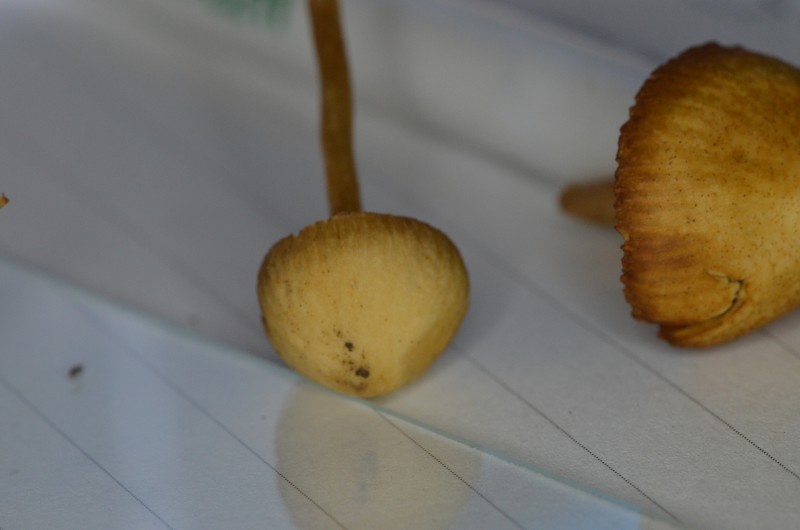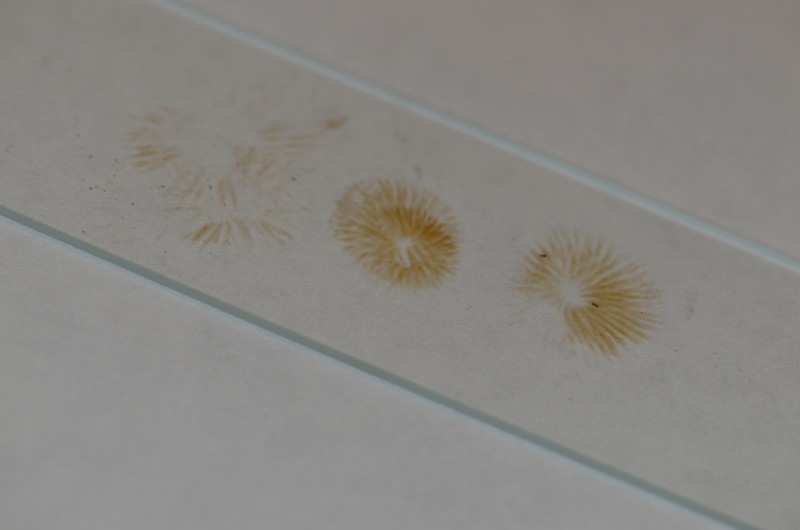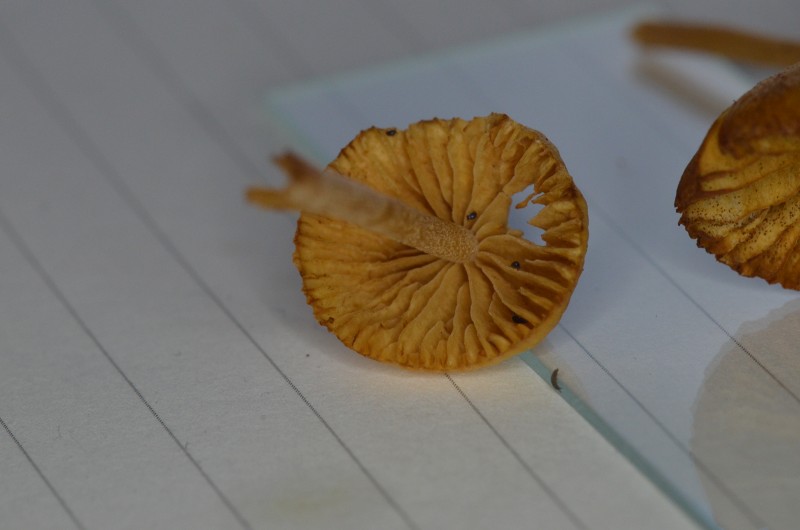



Judy said:
This is a little Galerina that is growing in grass,
but if you can find an other and carefully dig it out, it will be attached to mosses in the lawn.
I have lots of them.
The way to tell the difference between a Galerina and Conocybe, is look closely at the cap surface, -
this will be more scruffy and not shiny/smooth.
And then look closely at the stem - the full length.
You will see tiny white "scruffies" on the stem.
Under a dissecting scope they look shiny transleucent, and stand somewhat upright.
These are caulocystidia - very typical of Galerina an found on
most of the moss inhabiting species of this genus.
Caulo means wall and will cover the outside of the stem.
There will also be very tiny white fibrils like cobwebs scattered on the stem.
Your little specimen should probably be G. dimorphocystis, or G. clavata
(was G. heterocystis according the Alex Smith's monograph)
but now recognized as G. clavata.
The spores should be only very slightly roughened and these should be no
clamps on the septa of the hyphae anywhere on it.
It is a common cosmopolitan mushroom and I have scads of it in my yard this time of year.
To help tell Conocybe and Galerina apart
(yes their spores are same color, size and habitat can be very similar),
Conocybes of this color and stature type have shiny and smooth,
hollow stems, the caps seldom flatten,
and the cap will be fairly shiny as well.
There are strong differences in the spores as well - which you can see pictured in your microscopy book.
Judy

1. |

2. |

3. |

4. |

5. |

6. |

7. |

8. |

9. |